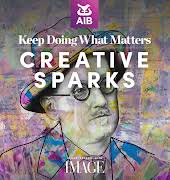
By Jennifer McShane
03rd May 2016
03rd May 2016
There are myriad reasons?why we value and appreciate our friends. They enrich our lives; pick us up when we’re feeling down and are gatekeepers to the deepest of secrets. We could go on, but we know they enhance our lives and according to a new study, they also bolster our ability to withstand physical pain.
Yep, a newly published Oxford University study indicates that those of us with larger social groups have a higher pain threshold.
Published in Scientific Reports, the research?tested the theory that we feel happy after hanging out with friends partly because social interactions trigger endorphin activity – the chemicals released by the body that help regulate pain and pleasure – which leads to positive emotions and happy feelings aplenty.
Endorphins are known to be a potent natural painkiller, and according to the new data ?indeed more so than the pain-relieving opiate drug morphine.? Impressive, no? As a result of this, researchers decided to test ?whether pain tolerance [?] predicts social network size.?
Researchers used a non-invasive physical pain test, asking 101 healthy adults to squat against a wall with knees at a 90? angle and a straight back for as long as possible. Participants also filled in questionnaires about their two closest friendship circles?people they spoke to every week and those they spoke to monthly. The study found that those with larger social networks could endure the pain for longer?and that the network of people contacted monthly was a particularly strong indicator of pain tolerance.
This suggests that people with more friends have a higher level of endorphins, which act as natural painkillers.
Another interesting aspect was that when they took into account different levels of fitness, they also noticed that fitter people tended to have fewer friends – is this because exercising?takes up more time or because a gym session produces more endorphins meaning that you don’t need friends for your feel-good factor? Researchers could not say.
The author of the study Katerina Johnson explained: ?These results are interesting because recent research suggests that the endorphin system may be disrupted in psychological disorders such as depression. This may be part of the reason why depressed people often suffer from a lack of pleasure and become socially withdrawn.?
?Studies suggest that the quantity and quality of our social relationships affect our physical and mental health and may even be a factor determining how long we live.”
We know it’s quality, not quantity that matters when it comes to friendships, but if this encourages?you to expand?your social circle, go forth and do so. It’s better for your heart too.
Via The Telegraph























